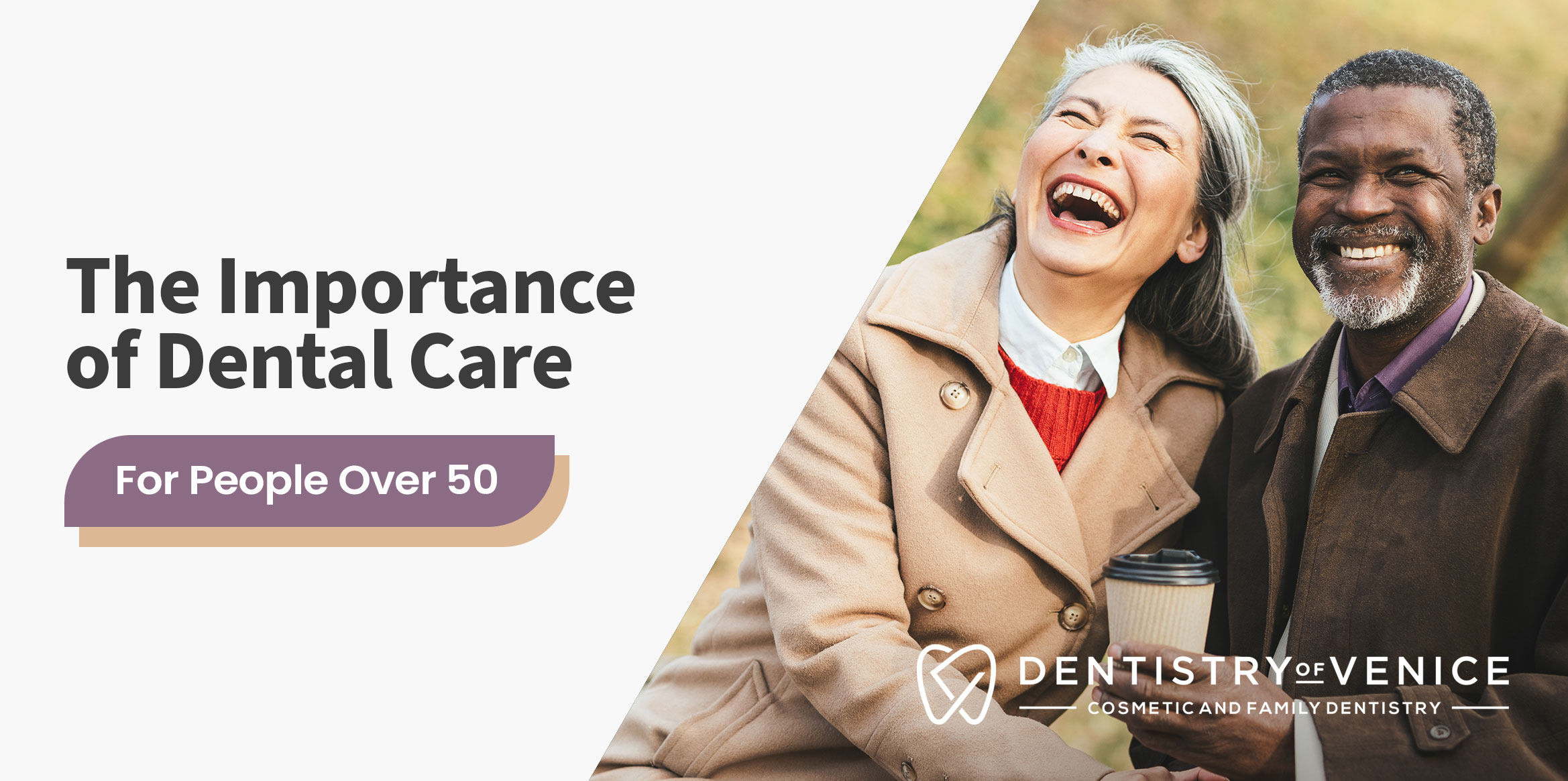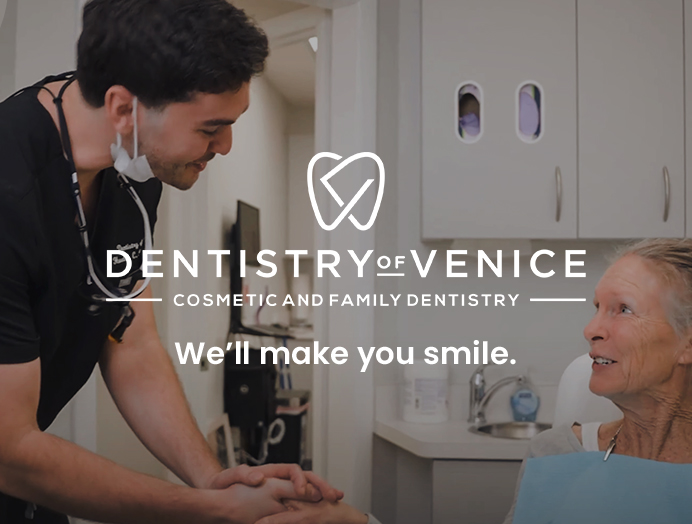The Importance of Dental Care for People Over 50
As we journey through life, each stage brings its own set of joys and challenges. For those of us over 50, taking care of our dental health becomes especially important. With age comes wisdom, but also some unique dental concerns that require our attention. Let’s explore why preventive dentistry is so crucial in our golden years and how we can keep our smiles healthy and bright.
The Changes We Face
One of the most natural parts of aging is the wear and tear our bodies go through, and our teeth are no exception. After years of chewing, grinding, and exposure to different foods and drinks, it’s no surprise that our teeth might show signs of wear like enamel erosion or cracks. This can make them more sensitive and prone to decay.
Gum recession is another common issue. As we age, our gums can pull back from our teeth, exposing the roots and making our teeth more vulnerable to decay and sensitivity. Alongside this, many of us experience dry mouth, often a side effect of medications for chronic conditions. Saliva is our mouth’s natural defense against decay, so when its production decreases, our teeth can suffer.
New Complications On the Horizon
As we get older, the risk of gum disease, also known as periodontal disease, increases. This condition can lead to serious infections and tooth loss if not managed properly. There’s also a growing awareness of how gum disease is linked to other health problems like heart disease and diabetes, making regular dental care even more vital.
Osteoporosis, a condition that weakens bones, can also affect the jawbone, leading to tooth loss. This is particularly a concern for women post-menopause due to hormonal changes. Moreover, the risk of oral cancer rises with age, emphasizing the need for regular dental check-ups for early detection and treatment.
Living with chronic conditions like diabetes can add another layer of complexity. Diabetes can make it harder for our bodies to fight infections, including those in the mouth, and heal wounds. The medications we take to manage these conditions can also have side effects that impact our oral health.
The Consequences of Neglect
Ignoring our dental health can lead to tooth loss, which affects more than just our appearance. Losing teeth can make eating difficult, leading to nutritional deficiencies, and can also impact our speech and self-esteem. Poor oral health doesn’t just stay in the mouth; it can contribute to serious systemic health issues. For example, bacteria from infected gums can enter the bloodstream and increase the risk of heart disease, stroke, and respiratory problems. Additionally, managing diabetes becomes even harder when periodontal disease is present.
Beyond the physical impacts, poor dental health can compromise our quality of life. Pain, discomfort, and the embarrassment of missing or decayed teeth can lead to social withdrawal and even depression.
Embracing Good Habits
Despite these challenges, there’s plenty we can do to maintain good dental health and keep our smiles radiant. Regular dental visits are a cornerstone of dental care. Seeing a dentist at least twice a year for cleanings and check-ups helps catch any issues early before they become serious problems.
Daily oral hygiene is essential. Brushing twice a day with fluoride toothpaste and flossing daily can keep plaque and tartar at bay. An antiseptic mouthwash can further reduce bacteria and keep your mouth feeling fresh.
Staying hydrated is another simple yet effective habit. Drinking plenty of water helps combat dry mouth, and chewing sugar-free gum can also stimulate saliva production. A balanced diet rich in vitamins and minerals, particularly calcium and vitamin D, supports both dental and bone health. Limiting sugary and acidic foods can protect your enamel from erosion.
For those who smoke or use tobacco, quitting can make a significant difference. Tobacco is a major risk factor for gum disease and oral cancer, so stopping this habit can greatly improve your oral and overall health.
Lastly, managing chronic conditions with the help of healthcare providers is crucial. Ensuring that medications do not adversely affect your oral health and finding alternatives if they do can make a big difference.
Final Thoughts
Taking care of our teeth is a lifelong journey, and it becomes even more important as we age. By understanding the unique dental challenges we face after 50 and adopting good habits, we can prevent serious complications and enjoy a higher quality of life. Our smiles are a significant part of who we are, and with the right care, we can keep them healthy and bright for years to come.




